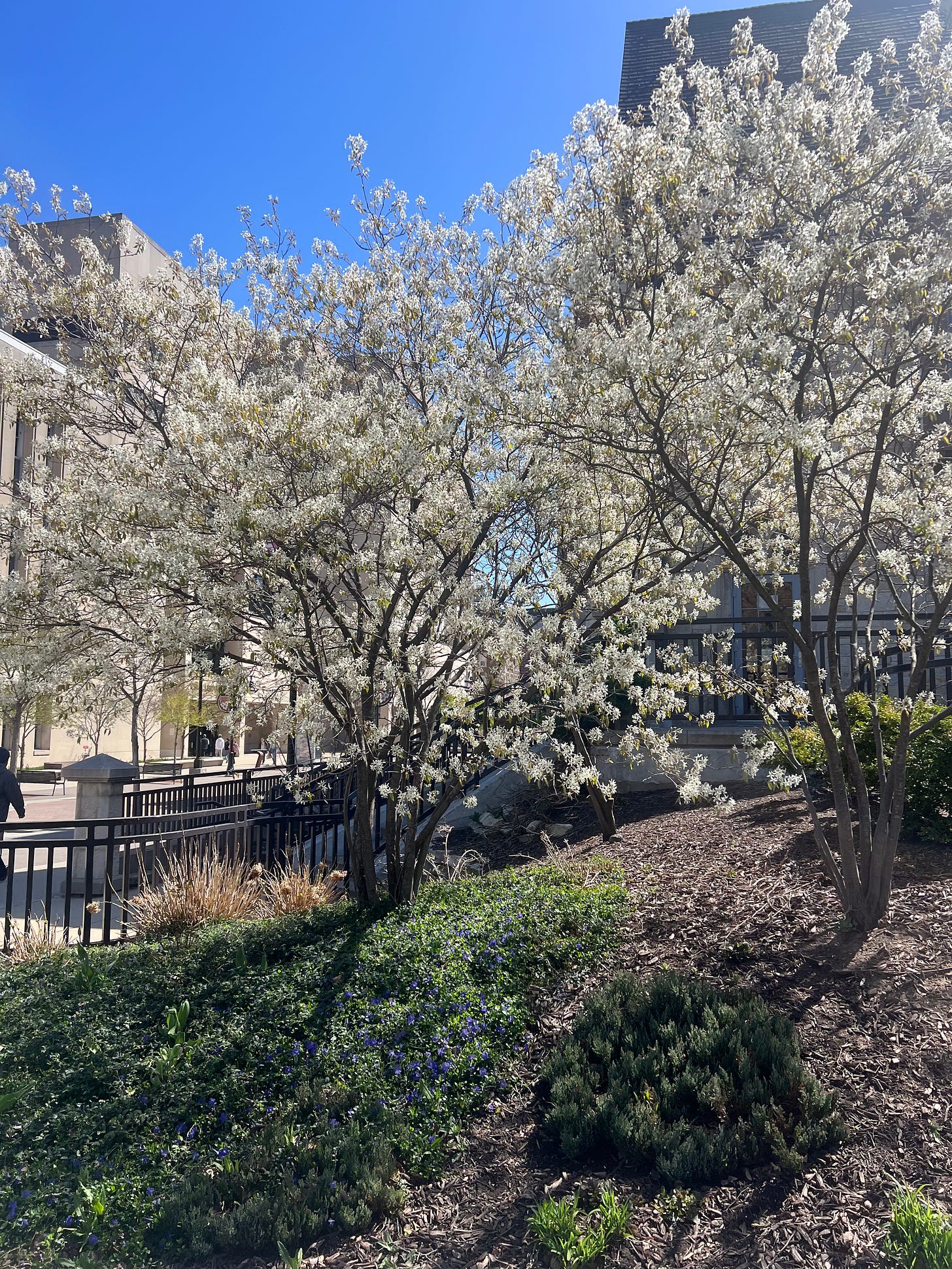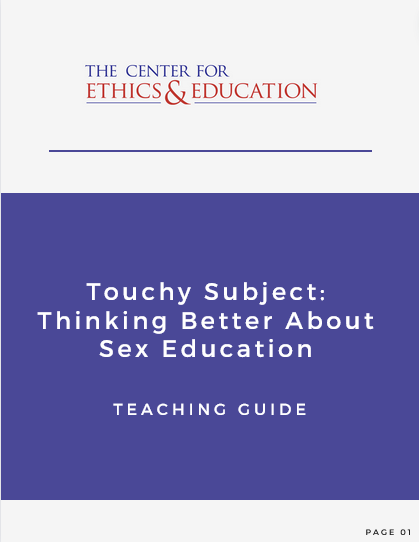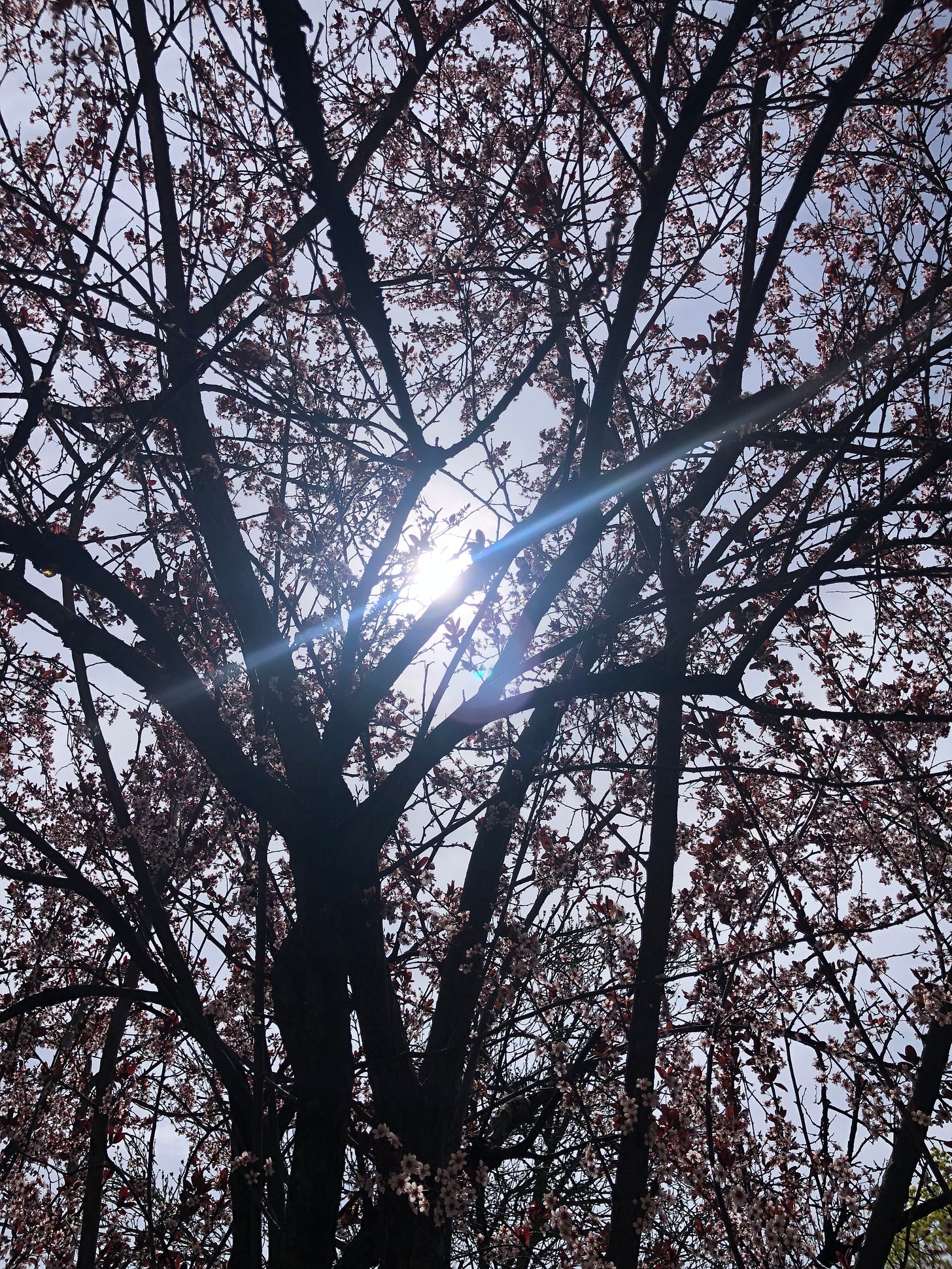Here in Madison, spring is official with the return of the outdoor farmers market, blooming trees, and seasonal allergies. At the coffee shop this morning, the person in front of me ordering coffee said, “uh…hot…wait, no—iced!” When it’s 55 and sunny, it could go either way.
In this mid-spring edition of our newsletter, we’re introducing a new (rhyming) feature and sharing our newest teaching guide. I asked Teresa to share her thoughts on developing curriculum from an undergraduate perspective, and philosopher of education David O’Brien offers us a clear overview of non-ideal theory.
Thanks for reading.
—Carrie, CEE program director
In this newsletter:
Icebreaker: Great books
New teaching guide! Touchy Subject: Thinking Better About Sex Education
Philosophy of education: Non-ideal theory by David O’Brien
Student post: Teresa on developing curriculum
Clerihew Corner: on Schouten
News & Events: We’re hosting a mini-conference next month
Icebreaker
What is one book you wish you could read again for the first time?
Touchy Subject Teaching Guide
Our newest teaching guide, a curricular companion to our “Touchy Subject” podcast episode, is now available on our website. We’ve included a readers theater, a school-based case study, a set of good discussion questions, and engaging in-class activities. This guide is a great way to introduce using non-ideal theory.
Non-Ideal Theory
by David O’Brien
‘Ideal theory’ and ‘non-ideal theory’ are quite grand-sounding words. But they’re just fancy names for answers to two different questions, and you’re already familiar with both questions. To illustrate that, here’s a simple analogy.
We have a yard, some bits and pieces of equipment, and some people who’ve just arrived. We’re all going to play a game. Of course we’d like everyone to have a good time, to have a fair shot at winning, and to be free to decide how they’ll play. So what should the rules of the game be? ‘Ideal theory’ is just a name for the answer to that sort of question.
Now imagine a different scenario. The yard has been vandalized. Or some of the equipment has been stolen. Or some of the people in the group have bullied the others in the past. Or they start with an advantage, because they haven’t played by the rules in the past or because they won’t play by the rules in the future. Now what should the rules of the game be? ‘Non-ideal theory’ is just a name for the answer to that kind of question.
Of course, it’s not very important to ask the ideal theory and non-ideal theory questions about the basic rules for a backyard game. But it is important to ask those questions about the basic rules or principles for a whole society. And it’s also important to be clear which of those two questions we’re asking. If we lose track of the difference between them, we can easily get ourselves tripped up. For example, if we’re trying to give appropriate advice for the real world, we’d better not slip into thinking only about the ideal theory question. And if we’re trying to get clear on our basic view about how people should live together, we’d better not slip into thinking only about the non-ideal theory question. (The distinction between the two questions, in other words, is a useful bit of conceptual optometry!)
Our world, of course, looks much more like the second of the two backyard scenarios above. And so the non-ideal theory question seems, to many people, to be the really pressing question to answer. But answering the non-ideal theory question raises special difficulties. To illustrate just one such difficulty, go back to that backyard scenario. Think again about those three underlying aims I mentioned—a good time for all, with a fair shot of winning, and freedom to decide how you’ll play. In the abstract, you might have a rough sense of how important each aim is, relative to the others. But, given the non-ideal circumstances, should the rules of the game really be designed around promoting those very same aims, in that very same order? Maybe not. Maybe, in those sorrier non-ideal circumstances, the rules should be designed around everyone at least having a somewhat good time—even if that means not everyone having a fair shot at winning. Or, just the opposite, maybe it would now matter much more for everyone to have a fair shot at winning—even if that means not everyone having as good a time. Which is the more appropriate response to those non-ideal circumstances?
Which is the more appropriate response to those non-ideal circumstances?
How to settle that special difficulty about non-ideal theory has very significant real-world upshots. To see that, think about an educational policy choice. Many of those whom we educate will have lives marred by pervasive contemporary injustices and by the legacy of historic injustices. How ought we to invest educational resources in response to those non-ideal circumstances? One response would be to prioritize those people acquiring the capacities that would allow them to at least have as happy a life as possible—even if that comes at the expense of not preparing them as effectively to compete in subsequent (unfair) socioeconomic competitions. Another response, just the opposite, would be to prioritize their having as close to a fair shot as possible in those subsequent competitions—even if that means their having a less happy time in education and thereafter. Which would be the more appropriate response to our non-ideal circumstances? Plainly enough, how we answer that question will have significant upshots for the shape and character of our educational institutions.
The non-ideal theory question, then, is a quite difficult question, and it calls for some hard thinking. It would be nice, in one way, if we didn’t have to answer such a difficult question. But, given our history—and the choices that we now face as a result of that history—we can’t duck the challenge of trying to answer it.
Clerihew Corner
Author Gina Schouten
Fish, She has doubt in
Egalitarian consciousness?
That jargon had me in a bit of a mess
by Sophia Cuti1
News & Events
NAAPE call for proposals: due July 1, 2024
Mini philosophy of education conference at UW-Madison: May 21, 2024
Drop by anytime,
CEE
This was in response to a discussion post assignment for Harry’s class. The texts referred to here are Gina Schouten’s “The Case for Egalitarian Consciousness Raising in Higher Education” (2022) and Stanley Fish’s Save the World on Your Own Time (Oxford University Press, 2006). For more clerihews, see: https://crookedtimber.org/2017/10/31/clerihew-corner/








Very thought prevoking. I'm trying to strip everything back and finding the answers to: What is education? I am coming from a place that the current system needs amending some how. Not sure what the answer is, but I am exploring different ideas, concepts and philosophies.
https://dompaynetutoring.substack.com/